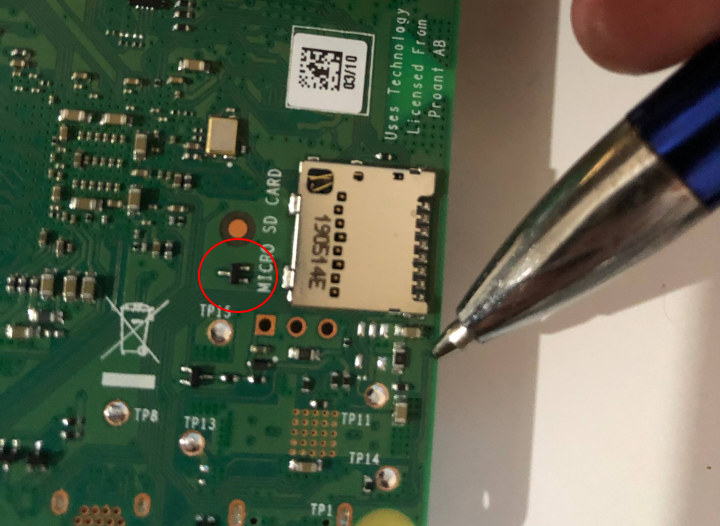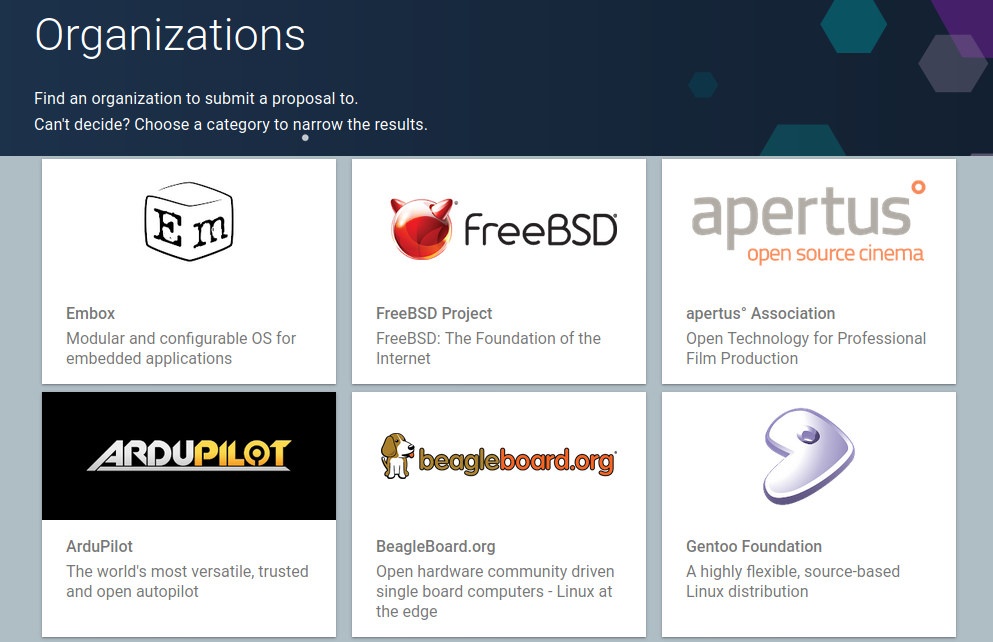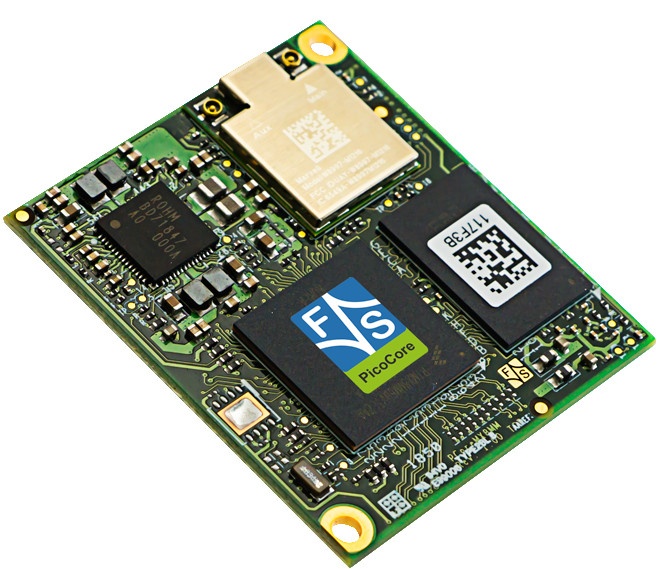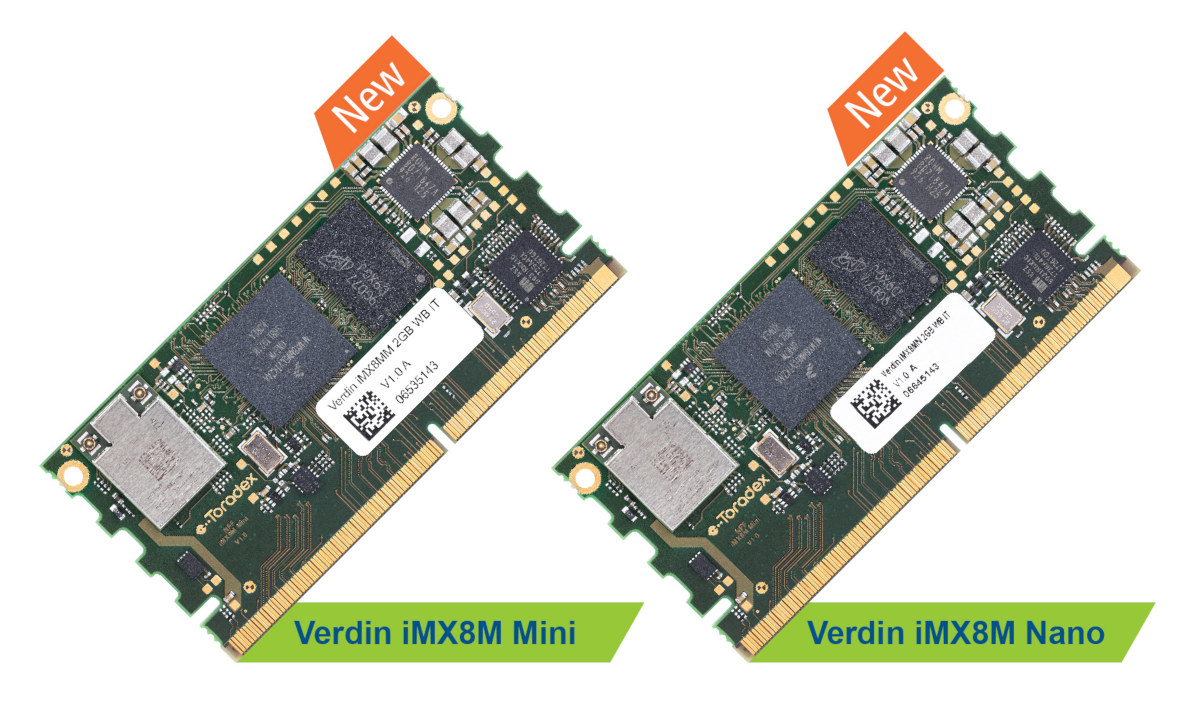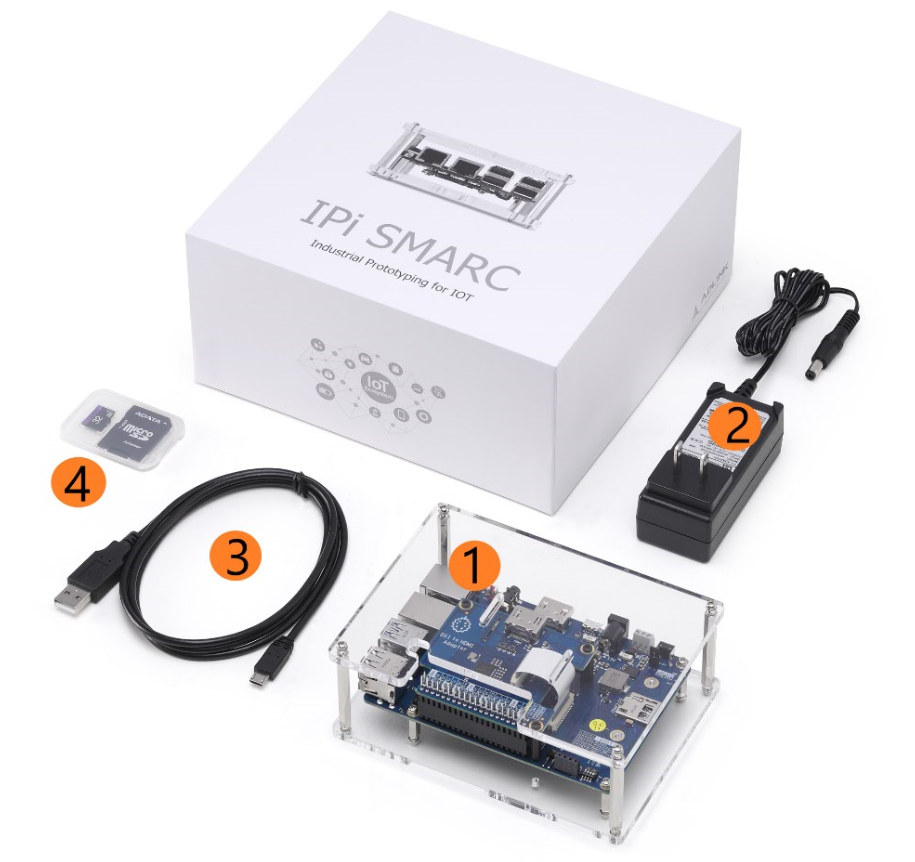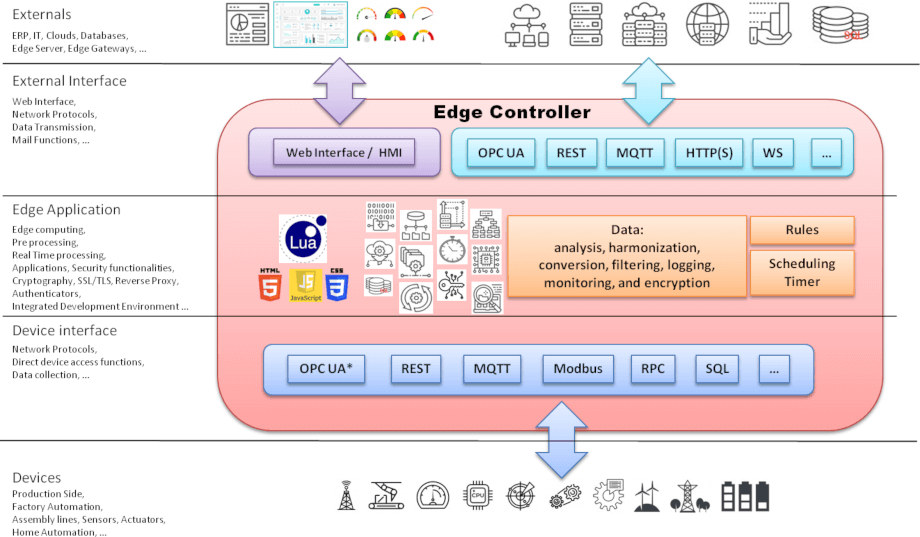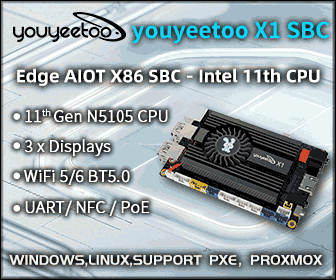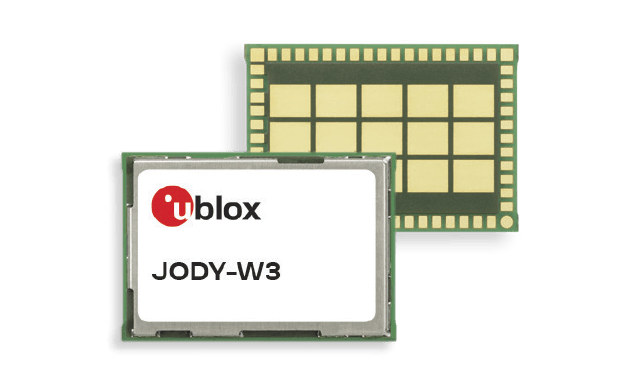The first Raspberry Pi 4 boards suffered from a poor USB-C power supply compatibility due to issues for the power circuitry. That means if you bought the official USB-C power supply you had no issues, but if you wanted to re-use a spare USB-C power supply or incompatible cable, you may be out of luck. The Register is now reporting that the Raspberry Pi Foundation has discreetly released a new revision (v1.2) of the board that fixes several issues including USB-C PD compatibility, and as Eben Upton explains the new revision also: moved the WLCSP SD card voltage switch to the top side … silk screen tweaks to reduce solder bridging in manufacture”. The new boards have been around for a couple of months as some users report the USB-C power issues have been fixed on new boards. Spotting Differences in the new Raspberry Pi 4 Rev 1.2 Board? The […]
Google Summer of Code 2020 Mentoring Organizations Announced
Every year Google organizes the Summer of Code inviting students to work on open-source projects and even get paid for it. The company first select mentoring organizations, before accepting applications from students. Google has now announced the 200 organizations/projects that have been selected for Summer of Code 2020. Many projects are higher-level software development such as web development or desktop programs development but there are also projects closer to the hardware-side of things with operating systems and multimedia projects. Some interesting organization and/or projects part of the audio / graphics / video / multimedia category include: apertus Association developing AXIOM open-source hardware camera FFmpeg multimedia framework to decode, encode, transcode, de/mux, stream, filter & play audio and video stream found in many projects OpenCV Open Source Computer Vision Library for computer vision and deep learning applications. XOrg foundation for X Window System and related projects such as Mesa, DRI, Wayland, […]
PicoCore MX8MN is a Tiny NXP i.MX 8M Nano Computer-on-Module
The PicoCore MX8MN Nano carries the NXP i.MX 8M Nano F&S Elektronik Systeme has announced the development of the smallest i.MX 8M based CoM yet: the PicoCore MX8MN Nano. Previously we had reported on the Congatec Conga-SMX8 Nano which was a fairly small CoM compliant with SMARC 2.0 standard. The PicoCore MX8MN is based on the NXP i.MX 8M Nano CPU with 1 to 4 Arm Cortex-A53 cores and a Cortex-M7 real-time core. The Nano is set to carry up to 8GB RAM and 32 GB eMMC, with optional WiFI/BT and support for -40º C to 85º C temperature ranges. Similar to Predecessor The PicoCore MX8MN Nano is very similar in structure to the PicoCore MX8MM Mini CoM, but with a different i.MX 8M Mini processor featuring the same Arm Cortex-A53 cores, but the Cortex M4 real-time core is changed to a more powerful Cortex-M7 core in the MX8MN Nano. […]
Toradex Launches New Verdin Arm SoM Family Starting with iMX8M Mini/Nano Modules
So far, Toradex had two Arm-based system-on-module families with the smaller, lower-power Colibri and more powerful Apalis modules. The Colibri form factor was first defined in 2005, and the company is still maintaining it, but since then new interfaces have emerged, so Toradex has now designed a new low-power module family called Verdin. Toradex Verdin modules offer more I/Os with a 260-pin edge connector, include a battery-ready design with a wide input voltage range (3.3 to 5V), low power 1.8V IOs, the ability to easily extend power management to carrier board peripherals, and off-the-shelf thermal solutions. The modules are also tested for EMC, shock and vibration tolerance, and “Toradex Direct Breakout” is said to simplify signal routing on carrier boards as high speed, impedance critical signals are routed from the source IC to the edge connector on the Verdin module in such a ways to limit complexity on the carrier […]
ADLINK Industrial-Pi (I-Pi) SMARC Development Kit Features Rockchip PX30 SoC
ADLINK Technology has just announced the Industrial-Pi (I-Pi) SMARC Development Kit to help engineers quickly design prototypes for industrial applications using peripherals and sensors. The I-Pi SMARC development kit is comprised of a baseboard, LEC-PX30 SMARC-compliant Rockchip PX30 system-on-module, an acrylic case, a 12V/2A power supply, USB cable, and a 32GB MicroSD card. The company promotes the kit as “an industrial-ready substitute for Arduino and Raspberry Pi (RPi) platforms that are commonly used for prototyping but cannot typically be ‘dropped’ into an industrial solution as-is“. LEC-PX30 SMARC System-on-Module Specifications: SoC – Rockchip PX30 Quad-core Arm Cortex-A35 CPU with TrustZone technology, ARMv8 Cryptography Extensions, Mali-G31 GPU System Memory – 1GB or 2GB DDR3L at 1066/1333 MHz Storage – 8, 16, 32 or 64 GB eMMC flash Connectivity – 10/100M Ethernet from SoC, 10/100M Ethernet via LAN9514 USB 2.0 Ethernet controller Video Decoding – H.264 up to 1080p60, H.265/HEVC up to 1080p60, […]
Barracuda App Server for ESP32 Let You Easily Develop Lua Apps via Your Web Browser
We covered Real Time Logic’s open-source lightweight Minnow Server for microcontrollers last year, and now the company has released another project: Barracuda App Server for ESP32. This project is more complex and requires an ESP32 board with PSRAM to run such as boards based on ESP32-WROVER module with 4 to 8MB PSRAM. The Barracuda App server (BAS) comes with a Lua VM, and in complement with the LSP App Manager that facilitates active development on the ESP32 by providing a web interface. The Barracuda App Server runs on top of FreeRTOS real-time operating system part of Espressif free ESP-IDF development environment. The company provides instructions to build BAS from source, as well as the LSP (Lua Server Pages ) App Manager that links to the binary-only BAS library. The Linux version of the ESP-IDF is recommended, so in Windows, you should install the “Windows Subsystem for Linux” first. The source […]
u-Blox Launches JODY-W3 WiFi 6 & Bluetooth 5.1 Module for Automotive Applications
u‑blox has just launched JODY-W3 wireless module which the company claims to be the first automotive-grade WiFi 6 module. Apart from supporting 802.11ax WiFi with 2×2 MIMO, the module also comes with dual-mode Bluetooth 5.1 connectivity. WiFi 6 will be used for applications demanding higher bitrates such as ultra‑HD video infotainment streaming and screen mirroring, wireless back‑up cameras and cloud connectivity as well as vehicle systems maintenance and diagnostics. Bluetooth 5.1 will be used for keyless entry systems and other applications leveraging direction-finding and the longer range offered by the latest version of Bluetooth. JODY-W3 module specifications: Connectivity Dual-band 802.11ac WiFI 5 and 802.11ax WiFI 6 with 2×2 MIMO support, WPA3 security Bluetooth 5.1 Classic and Low Energy; HCI profile Antennas JODY-W374 variant – 2x antenna pins for separate Bluetooth and Wi-Fi external antennas JODY-W377 variant – 2x antenna pins for Wi-Fi and one antenna pin for Bluetooth external antennas […]
The Things Industries Launches Global Join Server for Secure LoRaWAN
Co-Founder and CEO of The Things Industries Wienke Giezeman announced the launch of Global Join Server (GJS) which is a secure component of the LoRaWan server. As an ecosystem, Global Join Server allows activating devices of any LoRa network from anywhere on the World. According to Giezeman, it works with the Things Network, the Community Network, cloud hosting solutions, etc. It works no matter if it is a part of a network server outside the Things Industries, as long it uses LoRa standard interfaces. The Global Join Server’s role is to store root keys, generate session keys and send them securely to the Network Server and Application Server. There is no more need to send keys by email or to print them on the boxes, they are already in a secure place. The Things Industries offers to device makers, module makers and distributors, access to a network-agnostic Join Server of […]


